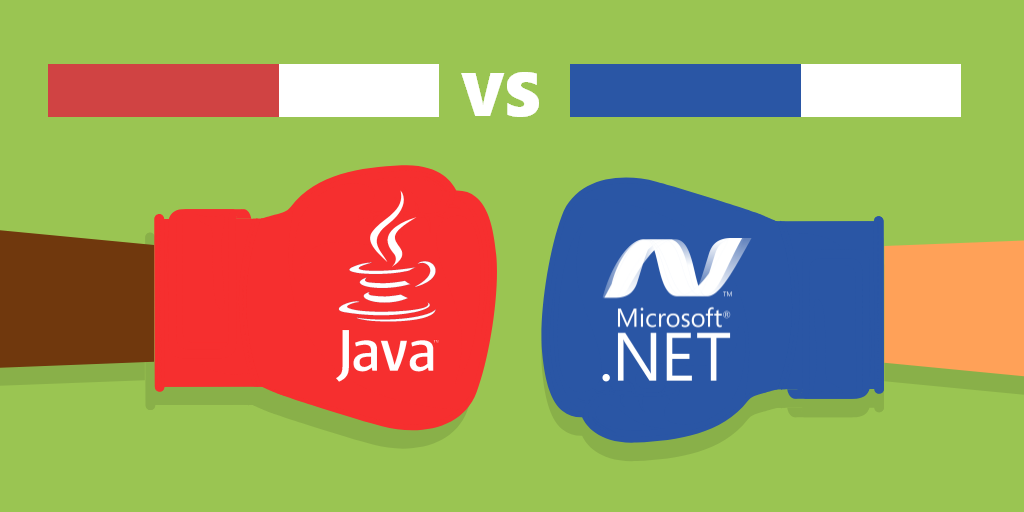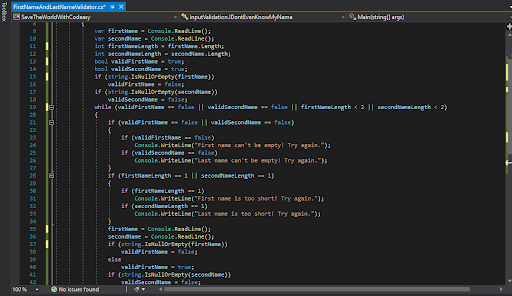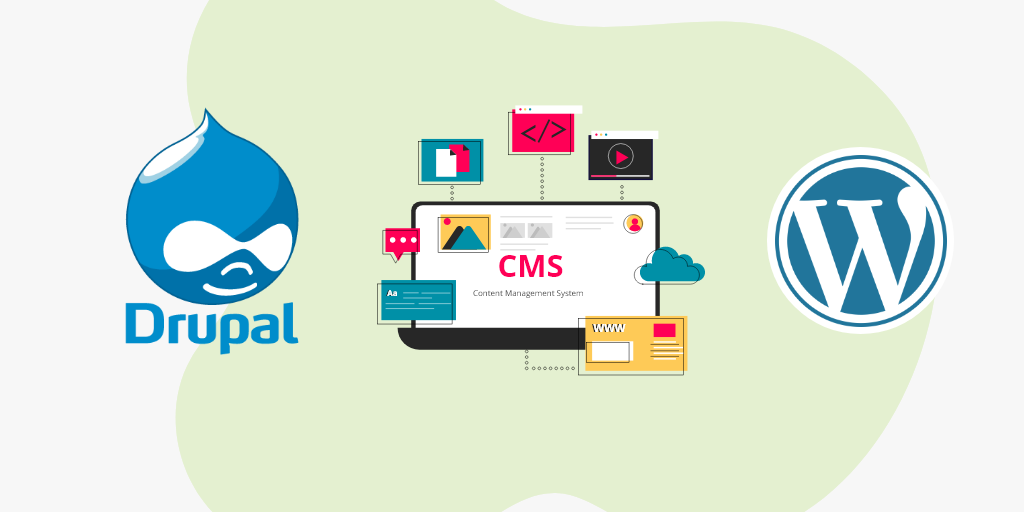Java vs .NET – Which is Better for Software Developers? A Beginners Guide

Java and the .NET framework are two major players in the programming world. They are a staple in the development community. Java vs .NET, which one is better?
Of course, that’s an answer best left to the users’ needs and requirements.
You can create cool programs with both of them.
That being said, there are similarities and differences between the two platforms which are worth writing about.
This post is aimed at highlighting that and more.
So, without further ado, let’s begin this comparison between Java and .NET.
What is Java?

Java is a programming language just like Python, C, Or C++.
It follows the Object-Oriented model of programming, which basically means there are fewer problems and dependencies with code.
Java, though it is an older programming language, is robust, secure, and reliable.
What’s Java used for?
It’s widely used in developing software ranging from laptops to data center software, mobile apps, and more.
What is the .NET framework?

Developed by Microsoft for building Windows applications. It includes a set of developer guidelines and tools that ensure a faster development experience on the Windows platform.
What’s .NET used for?
With the .NET framework, you can build windows applications, games, and software easily.
It can work alongside multiple different languages including C#, visual basic, and more.
The .NET framework has been around for some time, but it hasn’t lost its charm.
Its versatility enables you to build applications that are both form-based and web-based. Web services can be developed using the .NET framework.
The Differences Between Java And .Net – An Overview
The main difference between Java and .NET lies in where it can be used.
Java is a cross-operating system programming language meaning you can use it to develop software using Windows, Mac, Linux, or any other operating system.
The .NET framework, on the other hand, works only on the Windows platform. But lately, we’ve seen a resurgence in open-source versions that can make the platform work on Linux, Mac, and other OS’s.
That said, the platform is still a Windows-centric framework.
Java vs .NET – Language Support
Let’s give you a run-down of which languages the platforms allow you to work with.
Java developers can use JavaScript, Clojure, Groovey, and Scala.
.NET developers can use C#, F#, VB.Net, And C++.
Besides that, both the platforms support different other smaller, less popular languages.
Java vs .NET – Integrated Development Environment (IDE) Support

For those of you who don’t know, an IDE is basically code editing and testing software. These applications are designed to keep code organized, and test it for usability.
Now, Java supports a variety of IDE’s which include Eclipse, IntelliJ Idea, Oracle NetBeans, and JDeveloper. On the other hand, the .NET framework supports only Microsoft’s Visual Studio Code.
Java vs .NET – Which is higher in demand?

In comparison to Java, the .NET framework is less popular. There are more job opportunities for developers specializing in the Java programming language. However, with C# being a popular language and .NET using that language makes C# worth learning.
Now that you’re done with the overview, let’s dive deeper into the differences between the two.

Differences between .NET and Java – The In-Depth Look
Selecting the right programming language, to begin with, or start your new project is always tough. Devs from all corners of the internet recommend Python and JavaScript.
But if you’ve narrowed down your choice to Java and the .NET framework, then you’ll be joining the league of veteran developers.
With this comparison, you’ll be able to decide whether to choose .NET and Java.
OS Support
We’ve already discussed the upper and Java has over .NET in terms of operating systems.
While that is an important distinction and a core difference, let’s elaborate on the ways Microsoft has upped the ante in terms of making .NET available to users from other platforms.
They’ve done so by making the .NET framework open source. This allows Linux, Mac, and other non-windows users to access the platform within their OS.
On top of that, it doesn’t come with a cost, which is a huge plus for its adoption on other operating systems.
General Popularity
When people go about learning programming, the results that usually come up are Python and JavaScript. Newbies are generally told to avoid Java because it’s more complex. Disregarding all that, the platform has consistently been used and is one of the most popular languages out today.
With Microsoft investing heavily in its OS architecture and embracing open source, .NET is one of the frameworks that’s gaining serious popularity.
Also Read:
Advantages of .NET development

Reusable Code and Functions
Less code, less hassle. That’s the main advantage of working with the .NET framework. It reduces unnecessary work required to write functions with re-usable code that can be deployed.
Like any framework (Laravel, React.js, Bootstrap), its primary goal is to reduce the workload on development teams.
This means fewer hours grinding over code and faster deployment. Speaking of which…
Simplicity in Deploying and Maintenance
From what we already know, the.NET framework makes things easy for developers. It also benefits the other members within the Software Development Team Structure. For QA’s and analysts, better code deployment from the start means fewer chances for bugs and issues.
But wait, issues are inevitable, right?
Yes, but if an issue arises and is sent back to the development team, the developers can take part in the elements and then fix them.
You don’t have to go through lines of code just to see where the problems lie. You don’t have to sift through lines and lines of code just to see where the problem lies. You can find and fix it easily.
Cross Platform Development
Again, with Microsoft’s focus on open-source, the .NET framework can also be deployed to multiple operating systems.
Disadvantages of .NET development
Problems Between Release and Stability
The Microsoft curse applies to the .NET framework as well. Like most of Microsoft’s products, it’s prone to issues arising due to support, documentation, and stability. The lack of proper documentation has something to do with the fact as well.
Failure of the Entity Framework
The entity framework is another framework from Microsoft that supports the .NET framework. The problem with the framework is that it doesn’t provide support for new databases. There are plans to either improve the platform or abandon the framework entirely.
Advantages of Java development
Platform Independency
The primary advantage of Java lies in its universality.
As already discussed, it’s a cross-platform programming language meaning that once written, it can more or less work on any platform.
You don’t need virtual machines to run Linux to run Java for a project. You could write the code on windows, test it on Linux, and run it on Mac OS.
Two acronyms: Write Once Run Anywhere (WORA) and the Java Virtual Machine (JVM) is responsible for this cross-browser compatibility.
Java has been like this since day one when it was released by Sun Microsystems. You can expect that the majority of the issues have been resolved for now.
Community Support
You already saw this coming. Being an open-source platform, Java has an extensive community of developers helping solve issues with the language.
The community constantly gives back to budding developers and professionals through publishing content in various forms.
With Java’s popularity, it’s easy to find developers that are perfect for your next project.
Disadvantages of Java
Security Issues
With open-source platforms, security is the biggest concern. Because they are in the public domain, there will always be parties interested in infiltrating software programs for malicious purposes. Because of this, Java is considered a bit insecure compared to other platforms and those who have experienced breaches are careful while using it.
Vague Licenses
In the past, “Java is free” was a statement. Nowadays, it’s a question. Forums upon forums have debated this issue and the answer is still covered in vagueness. Do we need to pay for it or not?
Even Java’s official website, as well as oracle’s website, hasn’t made the fact clear – making things more complicated for the users.
Final Decision: Java vs .NET
As discussed in the introduction, we can’t tell you a definitive answer on the matter. That’s for you to decide when you’re building your next project.
With this post, we’ve covered the bases. They are both good platforms, with their own flaws. What suits you depends on what you want to do with it. For that, fill out your preferences and see which language fulfills those preferences easily.
Got an idea for a website? Good. Contact Codup to get it developed with your vision today!


